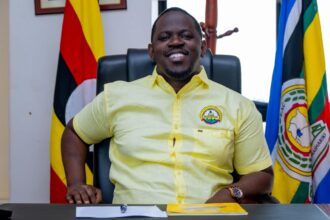I greet you all and congratulate you upon this day.
Our significant and impressive achievements have been made over the years. We have had noticeable dividends in the last 32 years. The years of neglect, apathy, mismanagement and institutional inefficiency that had eroded the country’s image are now behind us.
The NRM evolved, quite early, two principles: Patriotism and Pan-Africanism. Patriotism meant unity within Uganda so as to ensure our prosperity and security. Pan-Africanism was so as to promote unity in East Africa and Africa in order to guarantee the same prosperity and security even better. The unity of Uganda, the market of Uganda, is not enough to guarantee our prosperity (buying what we produce) and strategic security (to defend our sovereignty against the imperialists). The unity of East Africa, the unity of Africa can do these two better than the mere unity of Uganda.
Therefore, the two first principles of NRM became patriotism and Pan-Africanism. However, to benefit from Pan-Africanism and from Uganda’s unity, the society had to undergo a group metamorphosis ? a socio-economic transformation.
One cause of parochialism and sectarianism of ideology is a stunted society in terms of socio-economic transformation. The absence of a productive middle class, national bourgeoisie, compounds the problem of ideological bankruptcy.
The National bourgeoisie will, however, not grow by itself. This is where our third principle comes in. This is the principle of Socio-economic transformation. The NRM and other reformers before it had to trigger socio-economic transformation that would see our mainly peasant society, with a heavy dose of a petty bourgeois class (civil servants, teachers, etc), metamorphose into a middle-class and skilled working class society. The middle-class should have a high proportion of the National bourgeoisie (the manufacturers, the farmers, the service providers, the infrastructure developers) and not just traders ? especially not importers of goods and services that can, more economically, be made here. This is, indeed, the difference between Europe and Africa.
Therefore, principle number three of the NRM that enables us to understand the anatomy of the society so that we know the elements that are able to strengthen us and those that can weaken us, the need to understand the proportions of social-economic transformation, is very crucial and unique. It is unique because it is only the NRM that understands the importance of this.
What stimuli did we use to encourage this process? Apart from peace, we used four other stimuli. These were: education for all (UPE, USE), liberalization of the economy, improved health (especially immunization) and improved infrastructure (roads, electricity, telephone, the ICT backbone, piped water, safe water in the villages etc). As a consequence of these steps, the literacy rate is now 75%, up from 43% in 1986. The social base for socio-economic transformation has, therefore, been laid.
We are going to use it to transform the society permanently. We need correct policy stimuli to do so and I will bring those out later. Liberalization helped the creation of the middle-class by removing the State (Government) from doing business. The State used to monopolize the business of hotels, transport, imports, etc. These sectors are now being manned by the private sector. This creates efficiency and spreads wealth.
The fourth principle of the NRM is the democracy. Democracy is clear enough. Ugandan’s democracy, the democracy pushed by the NRM, is much richer than anything, anybody, has attempted to do in the world, other than the ancient Greeks who produced direct democracy, in the City States. We have empowered women, the youth, the workers, the disabled, the soldiers, etc. The NRM democracy must be kukyenuura-based through production of wealth and jobs creation. Kukyenuura means to solve a solvable need.
Over the last 50 years, the NRM has identified 10 strategic bottlenecks. Here below, they are restated.
(i) ideological disorientation;
(ii) a weak state, especially the army, that needed restructuring;
(iii) the suppression of the private sector;
(iv) the underdevelopment of the human resource (lack of education and poor health);
(v) the underdevelopment of the infrastructure (the railways, the roads, the electricity, the telephones, piped water, etc);
(vi) a small internal market;
(vii) lack of industrialization;
(viii) the underdevelopment of the services sector (hotels, banking, transport, insurance, etc.);
(ix) the underdevelopment of agriculture; and
(x) the attack on democracy.
As you can see, we have been handling many of the strategic bottlenecks: ideological disorientation, a weak State, emancipating the private sector, the human resource development (education and health), modernizing the infrastructure, integrating the fragmented markets, etc, etc. Hence, we have got a better base than ever before. We are, therefore, in a position to tackle, step by step, the residual problems and convert Uganda into a middle-income country by 2020 and an upper middle-income country by 2040.
I am a veteran of fighting poverty and working for socio-economic transformation in Uganda. I started this struggle, in earnest, in the Christmas of 1966 in the Butaka area (Rwakitura, Rushere, Naama, etc). That effort succeeded and, since 1995, I have been drawing the attention of the political class to that living example. Like the parable of the sower goes, much of the seeds fell on rocky ground and did not germinate.
In the Government Research stations and also working with some farmers, we also worked out a packaging for the crop areas. We worked out the four acres plan. Have one acre of clonal coffee, one acre of fruits, one acre of pasture for six zero grazing cows and one acre of food crops (bananas, cassava or Irish potatoes). Add to these, back yard activities of poultry for eggs, pigs, rabbits, etc. and fish farming where there are wetlands nearby. It is now 20 years plus when the NRM has been telling you about how to get 68% of our households out of poverty through commercial agriculture as far as those families with land are concerned. Those with smaller pieces of land than the 4 acres, can also earn good incomes from onions, from tomatoes, vegetables, mushrooms, etc.
Agriculture, however, will not be the only path for socio-economic transformation although it will provide raw-materials for a wide spectrum of industries ? dairy, beef, textiles, fruits, grain milling, coffee, tea, cocoa, sugar, wood products, tobacco, medicinal herbs, etc., etc. The other industries will be based on minerals.
Apart from industries based on agriculture and those based on minerals, there are also those based on human skills such as the Kiira electric car, the Kayoola electric bus, the multiple computer applications developed by our computer scientists, etc.
The services sectors are already providing important stimuli for modernization ? tourism, transport, banking, trading, insurance, professional services, etc., etc.
The five wealth and job creation funds will assist those who cannot raise their own capital. These funds are: the NAADS Fund, the Youth Fund, the Women Fund, the Micro-Finance Fund and the Innovation Fund. These should be interest free or low-interest loans to those who cannot borrow from banks. These funds will do three things: First, help us to eliminate the 68% “baroreezi” (spectators) of the homesteads that were identified by the 2002 census as being outside the money economy. Wealth creation is one area where we do not welcome “abaroreezi” (spectators).
Through Foreign Direct Investment (FDI) and the activities of the bigger investors, we shall create bigger units ? factories for sugar, steel, fertilizers, etc. As already pointed out above, the sky is now the limit.
There is, however, one problem that must be dealt with. This is the corruption of public servants ? judicial staff, medical personnel, staff dealing with licensing projects, etc. as well as some elements of the political class. This corruption will be eliminated. There will be no equivocation on this issue. “Enjokyi, ihakuurwa omuriro” (you use fire to tame aggressive bees). The way we defeated the indiscipline of the army, is the way we are going to defeat corruption.
I thank you.
Do you have a story in your community or an opinion to share with us: Email us at Submit an Article





